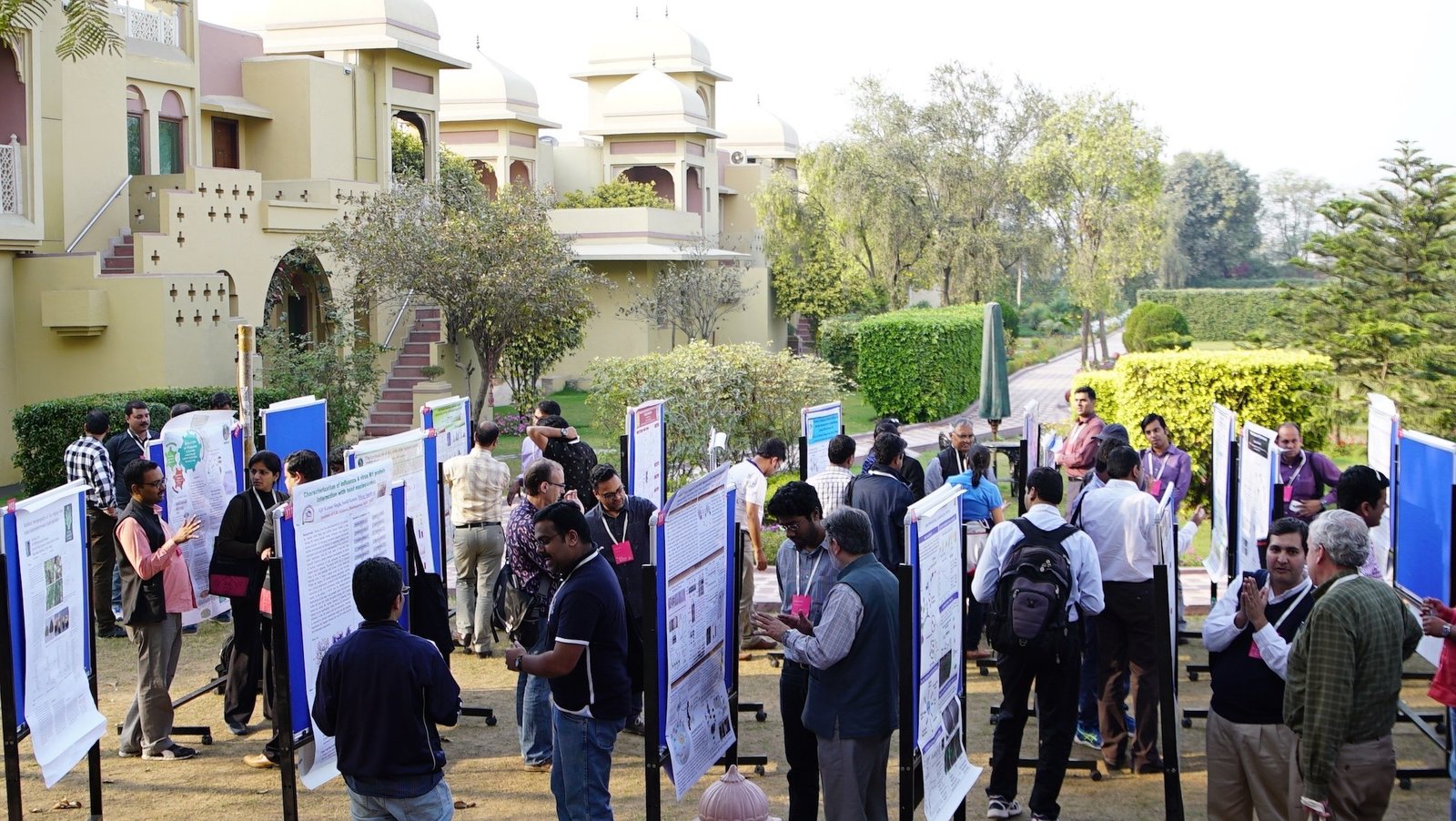Young Investigators from IISER, Thiruvananthapuram and NIPGR, New Delhi who were at YIM 2016 have some useful pointers for aspiring faculty candidates.

How long before you applied did you begin networking and visiting Institutes/Universities?
Satish Khurana, IISER Thiruvananthapuram: It took me more than 2 years. It is good to take things slow. I only visited one Institute — IISER Thiruvananthapuram. I visited because I realised Skype interviews were not working for me. After my interactions with the faculty, I was sure I would accept if I was made an offer.
Gitanjali Yadav, NIPGR, New Delhi: In my case, it was about 6 months. I was only looking for jobs in and around Delhi, so I networked extensively with people from Institutes and Universities in the area. I visited 4 – 5 Institutes to interact personally with faculty.
How many places did you apply to? How many interviews did you give?
Satish Khurana, IISER Thiruvananthapuram: I applied to around 12 – 15 places. I appeared for maybe four interviews.
Gitanjali Yadav, NIPGR, New Delhi: I applied eventually to 2 places and interviewed at both places.
What is your top tip for a good CV?
Satish Khurana, IISER Thiruvananthapuram: Make sure your CV and research statement don’t seem like a continuation of your postdoctoral work.
Gitanjali Yadav, NIPGR, New Delhi: Publications are crucial. Good publications, even early in the PhD, are a great addition to a CV. Also, having an independent grant is critical. And the Indian Government, luckily, have many grants for early career researchers.
What are the most important things that recruiters look for at the interview?
Satish Khurana, IISER Thiruvananthapuram: I think I’ll repeat myself here, but the point is worth reiterating — the recruiters are looking for an independent scientist, not a postdoc. They are looking for a researcher who can make significant contributions to his/her field of choice in the next 10 years or so.
Gitanjali Yadav, NIPGR, New Delhi: At both the interviews I attended, the main question the interviewers had was: “What’s your plan? Where do you see yourself 10 years from now?” They are most interested in whether you can come up with a viable research proposal.
What should candidates hope to learn from their experience at the interview?
Satish Khurana, IISER Thiruvananthapuram: Even when an interview doesn’t go well, you can learn from it. The questions will often push you to think about your research agenda beyond the short-term.
Gitanjali Yadav, NIPGR, New Delhi: You learn how effective you are at conveying your ideas. It is good to practise this early by conversing with people outside your lab and even outside your field of expertise through your PhD and postdoc years. Even if you get rejected after an interview, you would do well to remember and go over the questions that were asked and work to improve your answers.
What are the questions that candidates should ask at the interview, but often don’t?
Satish Khurana, IISER Thiruvananthapuram: How much teaching is involved — it is not something we come adequately prepared for. It is also important to ask about resources and funding, especially any equipment or resources that are crucial to one’s research.
Gitanjali Yadav, NIPGR, New Delhi: You should discuss your pay scale at the interview. In India, the selection committee decides your pay scale and it cannot be changed later. Many candidates are very hesitant about bringing this up.
Do you have any other advice you’d like to share?
Satish Khurana, IISER Thiruvananthapuram: I think serious candidates should look to apply for funding — there are plenty of return Fellowships available — and not hesitate to ask Directors/interviewers whether they are willing to be a Host Institute. You are viewed with a different perspective when you bring your own funding.
Gitanjali Yadav, NIPGR, New Delhi: I have interacted with many of the postdocs here at the YIM. Many of them have reservations and some fears about working in India. You can’t let go of those fears, but if you decide to come back, come prepared for a challenge. There will be obstacles, but there is plenty of help to avail of.